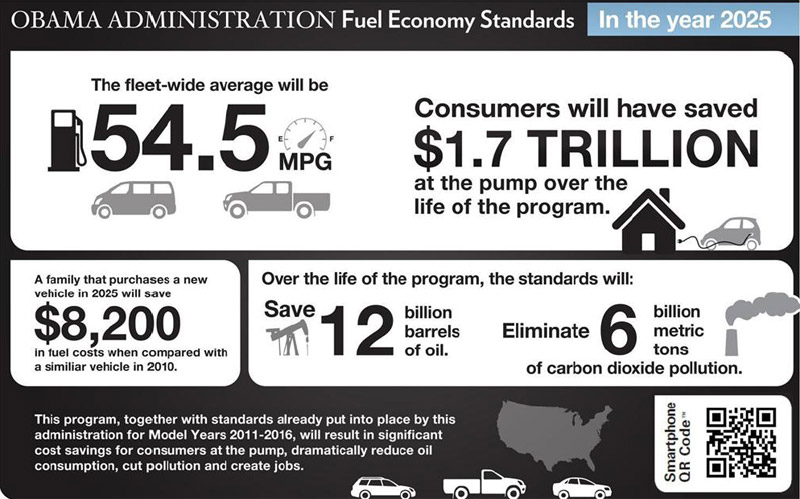
54.5 MPG CAFE standard for 2025
President Barack Obama announced late on Friday the next phase in the U.S. government’s program to increase fuel efficiency and reduce greenhouse gas pollution for all new cars and trucks sold in the country.
These new standards will cover cars and light trucks for the model years dating from 2017 through 2025, and will require automakers to return fleet-wide Corporate Average Fuel Economy (CAFE) equivalent to 54.5 mpg in 2025 while reducing greenhouse gas emissions to 163 grams per mile. Note, this is approximately double the current level of just 27.3 mpg.
The standards will require a 5 percent annual increase in car fuel economy from the 2017 model year through the 2025 model year, starting with the previous 35.5 mpg target for 2016.
The key for the administration is cutting the nation’s dependence on oil, with the program over its life expected to save an estimated 12 billion barrels of oil--nearly four years’ worth of consumption by light-duty vehicles at current levels.
However, for consumers, the program should save an estimated $1.7 trillion dollars in real fuel costs over the life of their vehicles. By 2025, the standards are projected to save families an estimated $8,200 in fuel savings over the lifetime of a new vehicle, compared to vehicles in the 2010 model year.
The program was developed in partnership with an alliance of automakers, the State of California, United Auto Workers (UAW), national environmental organizations and other stakeholders, and surprisingly, most automakers stood in agreement with the proposed new standards. That’s likely due to the proposed of 54.5 mpg figure being down on an original target of 62 mpg.
However, not all automakers were happy with the announcement. Volkswagen and Daimler, in particular, were unhappy about a rule that benefits full-size SUVs and pickups, segments the Detroit 3 flourish in.
While most vehicles will have to meet the 54.5 mpg standard by 2025, full-sized pickups and some SUVs would be exempt from the 2017 model year through the 2019 model year beyond which they will get their own standard. The reason is that the commercial consumers that purchase such vehicles require their strength, durability and towing capacity.
For detailed look at the new program, follow the jump below to access The White House’s full report.
